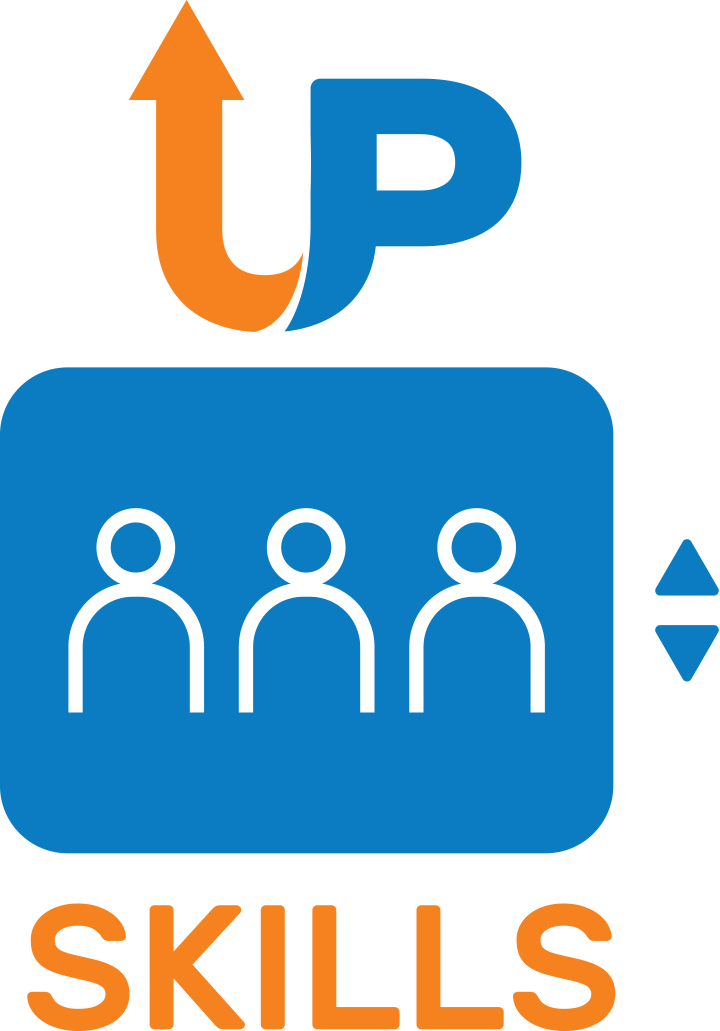Guidelines and best practices for research-based teaching
The third UPSKILLS multiplier event – 4 November 2022
→ Visit the News section for an account of the day’s sessions
WHAT
In this one-day event, we share the guidelines and best practices for incorporating research and research infrastructures into teaching developed in the UPSKILLS project. The first part of the programme will present the guidelines, whereas the second part will show how they have been implemented in the curricula by the consortium partners. Furthermore, we will address the relationship between research and the industry, and show how typical problems encountered in industry workflows have been integrated into students’ assignments. Finally, we will close the event by demonstrating how the learning content produced in UPSKILLS can be reused and integrated into the university curricula.
WHY
Technology giants such as Google, Amazon, and Facebook, all work with language data and the demand for research skills in language-related domains is constantly growing. The goal of the UPSKILLS project is to identify and tackle the gaps in digital skills through the development of a new curriculum component and supporting the embedding of adequate materials in existing programmes to prepare linguistics and language students for today’s jobs in the language industry. The main objective of this multiplier event is to inform the participants about the resources generated in the project, exchange best practices and collect feedback.
WHEN & WHERE
The event will take place on Friday, November 4, 2022, between 9:30 and 15:45 (CEST) at Inntel Hotels Utrecht Centre – Smakkelaarshoek 24, 3511 EC Utrecht, The Netherlands.
For information on how to get to Utrecht, please check the contact page of the CLARIN website and the directions on the hotel website.
The participants who will join the event virtually will receive the online meeting details a few days before the event.
FOR WHOM
The event targets university teachers, lecturers and curriculum designers mainly from the areas of languages and linguistics, e.g. Applied Linguistics, Language Studies, (Foreign) Language Teaching, and Translation Studies. Lecturers from other domains interested in the topics are welcome as well.
REGISTRATION
The registrations will close on 1 November.
For questions regarding the programme and/or participation, please contact [email protected].
PROGRAMME
All times are CEST (UTC+2)
09:30 – 09:35 Welcome by CLARIN ERIC
09:35 – 09:45 CLARIN Training and Education by Francesca Frontini, CLARIN ERIC
09:45 – 10:15 Keynote by Antal van den Bosch, CLARIN ERIC / University of Utrecht
10:15 – 10:30 Overview of the UPSKILLS project and where we stand by Stavros Assimakopoulos, Uni Malta
10:30 – 10:45 Break
10:45 – 11:45 Guidelines and best practices for research-based teaching | Moderator: Francesca Frontini, CLARIN ERIC
Short overview presentations by the consortium partners
11:45 – 12:30 Panel: Integration of research-based teaching into the curricula | Moderator: Marko Simonović, Uni Graz
Examples of how the guidelines have been implemented by the consortium partners followed by a discussion panel.
12:30 – 13:30 Lunch
13:30 – 14:30 Interactive Session with the Audience| Moderator: Darja Fišer
The participants will be invited to give feedback on the guidelines and share their experience with integrating research-based teaching, research infrastructures and problems from industry-based workflows into their curricula.
14:30 – 15:30 Demonstrations of the UPSKILLS Learning Content Blocks | Moderators: Jelena Gledic (onsite) and Stavros Assimakopoulos (virtual)
Both the online and onsite participants will be invited to select the learning content blocks they are interested in and then discuss in small groups how the content can be adapted to match their courses and/or programmes.
-
-
-
-
- Research skills: Introduction to scientific research; Analytical thinking and problem-solving; Project management
- Data acquisition skills: Introduction to programming; Text and speech processing (including corpus creation and use, recording and transcription of spoken data); Collecting data from human subjects
- Data handling skills: Introduction to machine learning (focused on language data); Data standards and repositories; Language data science
-
-
-
15:30-15:45 Conclusions and Wrap-up
REGISTRATION IS NOW CLOSED
